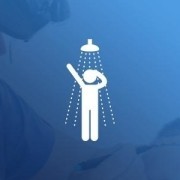Can I go to rain after hair transplant?
If you have finally decided to undergo a hair transplant, you have probably done your homework and considered all of the crucial considerations involved. These could include side effects, the expense of the procedure, preoperative measures, aftercare, recovery time, and so on.
Getting a hair transplant is a life-changing decision that requires both time and money. As a result, patients must have a complete awareness of what is involved and what to expect in order to make an informed decision and achieve the best results. The best time of year to receive a hair transplant is an important consideration.
Therefore, it can be easily said that hair transplant is a delicate procedure that may give you permanent results if you follow what your doctor says after having a great session of hair transplanting. Thus, one of those concerns that you should pay attention on is the way that you care yourself.
You have some responsibilities, such as avoiding certain weather conditions in order to give the scalp time to recover. However, it is critical to remember that you should not expose your head to direct sunshine or rain for at least two weeks after the surgery.
As the very first week after the surgery is so important that even this piece of time will determine the overall success of the surgery, the people who undergone a hair transplantation should give enough time to their bodies and scalps to recover in a peace.
For instance, you should forget walking under the rain for the first two weeks. Yes, it may sound bad to new ears, yet, hair transplantation surgery is a delicate operation, as aforementioned, the outcomes will be in your own hands.
Having a hair transplant in the winter may expose you to colder temperatures and rain. It is critical to understand that cold weather temperatures and rainy days do not impede the healing process. However, it is still necessary to preserve your scalp and newly implanted grafts from the elements as a regular aftercare step. As a result, avoid exposing your scalp to the winter elements and rain for a week to ten days following your hair transplant. You may wear a loose hat after a week while going outside from your home to preserve the scalp, as long as it does not rub against your new hair transplants.
It would be advantageous for you to have a general understanding of what to do and what not to do following a hair transplant.
Here are some precautions to follow:
- For a few days after the hair transplant, avoid shampooing your hair.
- Avoid going out when it is rainy.
- Do not allow your scalp stay wet or sweaty.
- Clean your head with soft shampoos, such as baby shampoo or a specialty shampoo, for the first few weeks.
- Avoid contact sports and any other activity that may lead you to accidently touch or rub your scalp.
- Maintain regular check-ups with your doctor to ensure that the incisions are healing properly.
- For at least three weeks after your hair transplant operation, avoid combing over the grafts.
- When you are in agony, take a pain reliever.
To summarize, planning a hair transplant therapy entails not only selecting an expert with vast experience in this operation, but also having realistic expectations about the post-operative process and being aware of key points so that you can recuperate properly. You should be sure about how to care for your freshly implanted hairs after a hair transplant procedure. They are still frail and require a bit more attention to fully establish themselves. Adopting a healthy and complete hair care routine is one of the most important things a hair transplant patient can do to heal and recover. On the other hand, with this meticulous caring session, you should also save your scalp the outer world, such as rainy days and harsh weathers.
Does Rain Affect Hair Transplant
Yes, rain affects your scalp, in a negative way, especially in the first phase of your recovery process, namely the very first two weeks. Rainwater, in principle, has higher acidic values because it accumulates impurities from the environment. As a result, when your hair comes into contact with this rainwater, it becomes rigid and unmanageable. Rainwater, on the other hand, upsets the pH balance of your scalp. As a consequence, growth of bacteria proliferates. Furthermore, your hair follicles may become more sensitive and begin to absorb more rainwater, causing your roots to enlarge and hair to fall out.
How long after hair transplant can I go outside?
After a hair transplant, it is important to take special care of your scalp and avoid exposing it to direct sunlight or other environmental factors that may hinder the healing process. It is generally recommended to avoid going outside for extended periods of time for the first few days after the procedure.
After the first few days, it may be safe to go outside for short periods of time, but it is important to avoid prolonged exposure to direct sunlight and to wear a hat or other protective headwear if necessary.
It is important to follow all post-operative instructions provided by your healthcare provider and to discuss any concerns about activities or environmental factors with them. Gradually increasing your time outside over the course of a few weeks can help to ensure optimal healing and hair growth.







